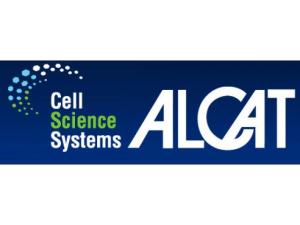The ALCAT Test is a food and chemical sensitivity/ intolerance test that identifies foods and chemicals that trigger problems in various body systems. The fundamental function of this test is to measure any adverse reactions that the human body may have to dietary substances. The ALCAT CSS laboratory presently tests for over 400 foods, food additives, food colorings, functional foods & medicinal herbs, environmental chemicals, and even molds.
CSS Founder-CEO Roger Deutsch said “detecting food intolerance by measuring inflammation that can trigger countless health issues, including obesity, irritable bowel, skin conditions, depression and migraines formed the basis of the test.”

Food allergies are essentially an IgE (Immunoglobulin E) system response that is generally characterized by shortness of breath, hives, diarrhea, nausea and in some cases anaphylaxis. Research says that people are most commonly allergic to nuts, shellfish, wheat and dairy. According to the Food Allergy & Anaphylaxis Network, about 4% of the United States population has food allergies.
Food intolerance or sensitivity, however, is much more common than food allergies and is determined by problematic digestion, headaches (primarily migraines), obesity, chronic fatigue, skin disorders, aching joints, and issues with behaviour. Studies indicate that 70-80% of America’s population is intolerant of certain food types. Unfortunately, many of those food intolerance symptoms are diagnosed as individual problems and treated as such, hence addressing only the symptoms and not the cause.
The ALCAT test is equipped to identify what foods may cause those symptoms before you experience them.
This test differs from other allergy and intolerance test in its treatment of the issue by directly measuring the leukocyte cellular reactivity in the bloodstream, which is the common pathway to all bodily mechanisms. CSS’s founder and CEO, Roger Deutsch says “Standard allergy tests, such as skin testing or RAST are not accurate for delayed type reactions to foods and chemicals. They measure only a single mechanism, such as the effect of mast cell release of histamine or the presence of allergen specific IgE molecules.” The ALCAT Test results are presented in an easy to understand, color-coded format that categorises intolerances by ‘severe,’ ‘moderate,’ ‘mild,’ or ‘safe.’”
“From there, a customized four-day rotational plan is recommended. After symptoms subside, the ‘severe’ and ‘moderate’ foods would be reintroduced on a limited basis. ”
Being safe rather than sorry has never before been this convenient. The benefits of the ALCAT Test include increased metabolic function, decreased cellular inflammation and an overall improved quality of life,” claims Deutsch.